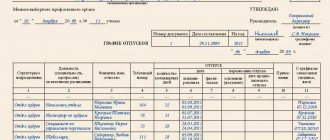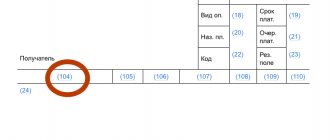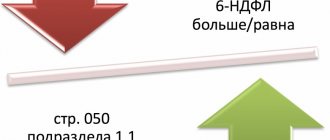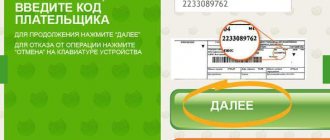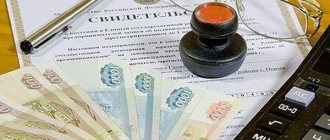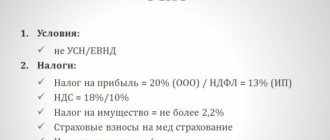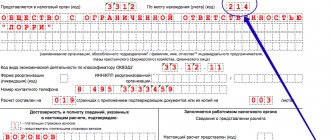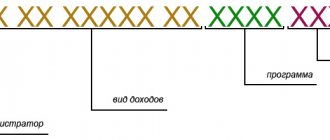- home
- Reference
- Insurance premiums
Private entrepreneurs are required to pay insurance premiums not only for their employees, but also for themselves. The procedure is performed annually, and also based on current details. But if an individual entrepreneur cannot or does not want to make contributions, then he becomes in debt.
Since 2021, the state has been offering businessmen a tax amnesty on fees and insurance premiums, but if an individual entrepreneur cannot take advantage of this relief for various reasons, then his debts will be collected by force.
Who will have their debts written off in 2021?
This year, an amnesty is offered for debt on insurance premiums, both for individual entrepreneurs and individuals. Individuals write off debts for transport, property and land taxes, but this only applies to debt that was incurred before 2015.
Reference! Former entrepreneurs who had debts before 2015 are exempt from mandatory repayment.
For 2021, several reliefs are proposed for individual entrepreneurs, so different types of debts are subject to write-off, which includes debt on insurance premiums. Not only immediate debts are subject to write-off, but also fines and penalties accrued on them.
Based on the amnesty, all legal proceedings regarding the collection of funds from entrepreneurs are terminated. The debt cancellation procedure is initiated by representatives of the Federal Tax Service, so businessmen do not have to prepare any statements on their own.
In 2021, amnesty is offered to the following persons:
- debts on contributions to social funds are forgiven for legal entities;
- persons engaged in private practice receive exemption from repayment of debt on insurance premiums;
- transport, income and property debts are forgiven for individuals and individual entrepreneurs;
- For individual entrepreneurs, an amnesty is additionally offered for contributions to the Pension Fund, Social Insurance Fund and Compulsory Medical Insurance.
Write-offs are made exclusively for debts that were incurred before 2021, if this applies to insurance premiums. Taxes are written off for debts incurred before 2015.
Information about the presence of outstanding debt can be obtained directly from employees of the Federal Tax Service or through the official website of this service. The verification can be performed through the State Services portal if you have an identified account.
It is recommended to contact the bailiffs to find out about the availability of open proceedings in which FSSP specialists have the right to write off funds from the current or personal accounts of entrepreneurs.
It is also useful to read: Mandatory insurance contributions of individual entrepreneurs to the Pension Fund of Russia
Measures to support individual entrepreneurs due to the coronavirus pandemic
Putin's decrees and the restrictive measures introduced due to coronavirus in 2021 have had a negative impact on business. A set of measures has been developed to support entrepreneurs.
You can check whether benefits will be provided through the Federal Tax Service service.
What payments are written off:
- Taxes and advance payments, except VAT, personal income tax and gambling business.
- Excise taxes.
- Trade fee.
- Insurance premiums for employees and partially (1 minimum wage) for yourself.
There is no need to submit an application. The Federal Tax Service itself does the calculations and takes into account the write-off. If the verification service shows that the individual entrepreneur is subject to write-off, the entrepreneur has the right not to pay taxes or count them towards those paid at the end of the year.
What to do to write off debts
The amnesty is offered on the basis of official orders of the Government, and to write off debt, entrepreneurs do not need to make any applications, prepare documents or contact Federal Tax Service employees.
Attention! The regulations do not contain information about the timing of write-offs, and there is also no information about the duration of the amnesty.
The fiscal authorities of each region independently form a special schedule, on the basis of which the debts of individual entrepreneurs are written off. Errors and misunderstandings often arise, so the individual entrepreneur’s debts are simply not written off.
Therefore, entrepreneurs perform the following actions:
- Initially, your personal account is checked on the Federal Tax Service website, which reflects current and written-off debts;
- if you have any doubts about the existence of an outstanding debt, you can clarify this issue by telephone or during a personal visit to a Federal Tax Service office;
- if necessary, a special appeal is drawn up to representatives of the Federal Tax Service, which contains a request to reconcile debts and write them off as part of the ongoing amnesty.
Such actions help reduce the risk that debts that can be written off by law will have to be repaid yourself.
Amnesty is a measure of support that is offered to entrepreneurs who, when faced with crisis situations, were unable to pay taxes and insurance premiums . But this does not apply to unscrupulous businessmen who hid income or are trying to write off recently incurred debts.
It is also useful to read: Refund of overpaid insurance premiums
How to write off a tax debt for an individual entrepreneur
Since the tax service often has a lot of other equally important tasks, writing off old debt can take years. Then it’s wiser to write it off yourself by following these steps:
- It is more convenient to receive a certificate of tax debts from the Federal Tax Service through your personal account. If you need to involve the court, it will serve as confirmation of the existing debt.
- Submit a claim to the tax office, then to the Office of the Federal Tax Service of Russia for your region. This is a mandatory step in the pre-trial resolution of disputes, without which the court will not accept the case for consideration. There is no specific form of claim - it will be enough if it discloses information: who is demanding, from whom and what exactly. For example, this one:
- Apply to the court. Similar to a claim, an application does not strictly have a form - it is enough that it meets the requirements of Art. 131 Code of Civil Procedure of the Russian Federation. Depending on the workload of a particular judicial authority, consideration of the application may take from 2–3 to 4 months or more.
When making a decision, the court looks at whether the deadline for collecting tax debts has passed. If they pass, then he takes the applicant’s side. Then the judicial act will say something like “The Federal Tax Service has lost the ability to collect arrears due to the expiration of the statute of limitations.” Here is an example of such a decision on UTII.
- Then you need to send a copy of the received judicial act to the tax office. This is not necessary, but it’s better to remind yourself once again - then writing off your debts will go faster.
(16.9 KB)
- At the final stage, all that remains is to obtain a certificate from the tax service confirming the absence of debts.
The Federal Tax Service has 6 days to write off the debt. If the individual entrepreneur debt remains hanging in the tax authority’s database, then file a complaint with the local branch of the Federal Tax Service. First, you can complain to the Office of the Federal Tax Service of Russia for your region, then (if there is no positive effect) - to the Prosecutor's Office of the Russian Federation.
Have questions about the bankruptcy procedure?
Leave your phone number, our lawyer will call you back in 1 minute and help you figure it out. It's free.
How is arrears collected?
If an entrepreneur’s debts do not fall under the amnesty, then he is faced with forced collection of money.
The procedure is divided into several stages:
- If insurance premiums are detected by the tax authority, the Taxpayer receives a special requirement to pay insurance premiums. The procedure is carried out within three months after the discovery of arrears, as indicated in Art. 69 NK. The text contains not only the amount of the unpaid contribution, but also accrued penalties or fines.
- If the individual entrepreneur refuses to pay the fee, then the funds in the entrepreneur’s bank account are withdrawn. The procedure is carried out based on the decision of the management of the Federal Tax Service, for which special instructions are sent to bank employees. Money from the accounts is transferred to the tax office. The decision to collect funds is made within two months after the end of the period given to the taxpayer to repay the debt. To ensure compliance with this decision, all transactions on the accounts are suspended.
- Collection of funds from other property. This process is performed when there is no money in the account. Such a decision is made one year after the expiration of the deadline for fulfilling the requirement for which the individual entrepreneur must repay the debt. For this purpose, a special resolution is sent to the bailiffs. To enforce the decision of the Federal Tax Service, property is seized. Not only property used in the process of work is subject to confiscation, but also personal valuables of the individual entrepreneur.
- A businessman is declared bankrupt. If a citizen does not have money or valuables with which to repay the debt, then representatives of the Federal Tax Service send a bankruptcy case to the court. Based on Federal Law No. 127, the basis for declaring an entrepreneur bankrupt is the inability to meet obligations.
Reference! If bankruptcy proceedings are initiated, then all property belonging to the debtor is used to pay off debts to the state or counterparties.
The tax amnesty was also extended to some income of individuals
Let us say right away that the tax amnesty affected individuals and individual entrepreneurs. However, for a clearer perception of the material, let us explain the difference between these categories.
| Individuals | IP |
| The subjects of rights and obligations are individuals, namely citizens who have the right and legal capacity. Legal capacity arises from birth for all citizens, without exception, legal capacity after adulthood. | An individual entrepreneur (IP) is an individual who has undergone a certain registration procedure in this capacity. Only having received such status, an individual has the right to carry out entrepreneurial activities, i.e. enter into transactions in order to make a profit. In the absence of individual entrepreneur status, an individual can make transactions aimed only at satisfying his own needs. |
Next, let’s look at how exactly “Putin’s” tax amnesty will affect “physicists” and individual entrepreneurs.
Tax amnesty for individuals
| Type of tax | Who pays |
| Transport tax | Transport tax is required to be paid by the person to whom the vehicle subject to this tax is registered (paragraph 1 of Article 357 of the Tax Code of the Russian Federation). |
| Property tax | All owners of real estate that is subject to taxation and located in Russia must pay property tax. It does not matter who the owner is: a foreign citizen, a citizen of Russia or a stateless person (Article 400 of the Tax Code of the Russian Federation). |
| Land tax | Land tax is levied on land plots that are owned or owned by the right of permanent (perpetual) use, the right of lifelong inheritable possession (Article 388 of the Tax Code of the Russian Federation). |
Citizens pay land and transport taxes, property tax on individuals on the basis of tax notices. Also see “Consolidated tax notices in 2021: distribution”, “Generation of consolidated tax notices”. When people receive notifications from the Federal Tax Service, they often see in them accrued taxes, as well as debt on them and increased penalties.
All listed taxes for individuals are covered by the new tax amnesty. Thanks to the commented amendments, the arrears accrued by “physicists” as of January 1, 2015 are completely written off. Also, penalties accrued on this arrears are subject to write-off (Article 12 of the law under comment).
Please note that no special conditions are provided for writing off debts for transport, land and property taxes, in particular:
- it does not matter whether a person is a pensioner or not;
- the size of the income of the debtor and his family does not matter;
- the reason why a person did not pay taxes on time does not matter.
There are also no restrictions on the minimum and maximum amount of taxes - all arrears as of January 1, 2015 are subject to write-off. And penalties are canceled as of the date the tax inspectorate (IFTS) made the decision to write off.
Let’s assume that as of January 1, 2015, an individual had a transport tax arrears of 9,000 rubles. By the end of 2021, penalties were charged for the arrears - 3,447 rubles. Total debt: 12,3447 rubles. This entire amount will fall under “Putin’s” tax amnesty.
Tax amnesty for individual entrepreneurs
An individual entrepreneur can apply one of five taxation systems and pay taxes within this system. Let's list the main taxes that businessmen pay.
| Tax system | What taxes are paid by individual entrepreneurs? |
| General system (OSNO) | Individual entrepreneurs pay personal income tax and VAT on income from business activities. |
| Simplified system (STS) | Instead of personal income tax and VAT, individual entrepreneurs pay one single simplified tax (STS). |
| "Imputement" (UTII) | Instead of personal income tax and VAT, the entrepreneur pays UTII, which does not depend on real income. |
| Patent system (PSN) | It is similar to UTII, but there are differences in the types of activities and conditions of use. The cost of the patent is paid. |
| Unified Agricultural Tax (USAT) | Can only be used by agricultural producers. Unified agricultural tax replaces personal income tax and VAT. |
Article 12 of the law under comment provides for the write-off of tax debts of individual entrepreneurs. It is stipulated that the following are considered uncollectible and subject to write-off:
- arrears on all taxes as of January 1, 2015 (except for the mineral extraction tax, excise taxes and taxes payable in connection with the movement of goods across the border of the Russian Federation);
- arrears of penalties for the specified arrears and arrears of fines as of the date the tax inspectorate made a decision to write off debts.
In relation to individual entrepreneurs, we are talking about writing off any amounts of tax debt. So, for example, tax authorities will be required to write off debts for any amount, for example, under the simplified tax system, UTII or patent tax. All penalties and fines are also cancelled. There are also no special requirements or conditions for applying the tax amnesty for individual entrepreneurs. That is, the very fact of having a tax debt as of January 1, 2015 is in itself grounds for amnesty.
Where should “physicists” and individual entrepreneurs go to write off debts?
The debt of individuals for transport, land and property taxes will be accepted by the tax inspectorate independently. No statements or documents are required from the person for this. The Federal Tax Service Inspectorate at the place of residence of an individual (location of real estate and transport) is an example of a decision to write off debts based on its data.
The same situation applies to individual entrepreneurs. Tax authorities at the place of residence (or registration) of individual entrepreneurs must independently write off tax debts. The commented law does not provide that entrepreneurs must send applications to the Federal Tax Service with a request to write off debts.
Please note: if a person or individual entrepreneur regularly paid taxes and has no debt, then the tax amnesty is not a basis for demanding a refund of paid taxes to “restorate justice.”
Tax amnesty" was also announced in relation to income received by individuals from January 1, 2015 to January 1, 2021, upon receipt of which personal income tax was not withheld by the tax agent and information about which was submitted by the tax agent to the Federal Tax Service in the form of a 2-NDFL certificate with the attribute "2 " Let's look at this in more detail.
| Sign in 2-NDFL | What does it mean |
| Sign 1 | Such a 2-NDFL certificate reflects what income was paid to an individual, how much personal income tax was accrued from them, withheld and transferred to the budget (clause 2 of Article 230 of the Tax Code of the Russian Federation). |
| Sign 2 | Such a 2-NDFL certificate is a message to the Federal Tax Service that you paid income to an individual, but were unable to withhold tax from it (clause 5 of Article 226 of the Tax Code of the Russian Federation). |
Let’s assume that the Stella organization gave a former employee a gift worth more than 4,000 rubles. A gift is income in kind; it will not be possible to withhold personal income tax from it immediately upon issuance. In this case, the organization must withhold personal income tax from the nearest cash income paid to this person (clause 4 of article 226 of the Tax Code of the Russian Federation).
But since the person no longer works, there is no way to withhold personal income tax from income. Therefore, you need to report this to the inspectorate by sending a certificate with sign “2”. A 2-NDFL certificate with attribute “2” must also be issued to an individual (clause 5 of Article 226 of the Tax Code of the Russian Federation). The person, in turn, is obliged to submit a declaration and pay the tax on his own. If this is not done, then the person becomes a debtor to pay personal income tax.
The commented law supplements the list with new non-taxable income - income received by taxpayers from January 1, 2015 to December 1, 2021, upon receipt of which personal income tax was not withheld by the tax agent and certificate 2-NDFL with attribute “2” was submitted to the Federal Tax Service Inspectorate (new paragraph 72, article 217 of the Tax Code of the Russian Federation). Taxpayers do not need to file a return or pay income tax on such income.
What incomes were not included in the amnesty?
| Income in the form of remuneration for the performance of labor or other duties, performance of work, provision of services. |
| Income in the form of dividends and interest. |
| Income in the form of material benefits, determined in accordance with Article 212 of the Tax Code of the Russian Federation. |
| Income in kind, determined in accordance with Article 211 of the Tax Code of the Russian Federation, including gifts received by taxpayers from organizations or individual entrepreneurs. |
| Income in the form of winnings and prizes received in competitions, games and other events. |
As you can see, the list of income not subject to the tax amnesty is quite wide. It includes, in particular, payments and remuneration under civil law and employment contracts. But then what kind of income received from 01/01/2015 to 12/01/2017 fell under the tax amnesty? For what income was a new paragraph 72 of Article 217 of the Tax Code of the Russian Federation introduced?
We are talking about writing off tax debts from “notional income”. These are incomes that in fact do not really exist. For example:
- Banks sometimes write off part of the debt as interest on a loan when they see that a person is unable to repay the loan. In accordance with current tax law, all these funds, once written off, become the person's income, and, therefore, having carried out such debt forgiveness, the bank or company must immediately notify the tax service that the person must pay income tax on these incomes (that is, send certificate 2-NDFL with sign “2”);
- Sometimes companies servicing the housing and communal services complex write off penalties on utility bills when people in difficult life situations simply cannot pay them. In such a situation, people also have income on which they need to pay personal income tax.
Voluntary debt repayment
To prevent the accrual of penalties and fines, entrepreneurs are required to take a responsible approach to their obligations to the Federal Tax Service and other government funds. Therefore, you need to pay an annual fee in the form of insurance premiums. For this purpose, details received from representatives of the Federal Tax Service are used. Information is provided on the website or during a personal visit to the service branch.
Payment orders can be generated through online services, which prevents the possibility of errors. The required values in such forms are inserted automatically, so the correct BCC and account numbers are entered. If you transfer the information yourself onto paper, you can confuse the numbers. This will lead to delays, as well as fines and penalties.
If debts are voluntarily repaid, it is advisable to contact the Federal Tax Service employees along with the check and receipt to provide them with evidence of fulfillment of the obligation. This will allow you to quickly make changes to a special database, so you don’t have to worry about additional fines, seizure of accounts or forced collection of funds.
It is also useful to read: Recalculation of insurance premiums
What is not subject to amnesty
The legislation clearly defines the types of debts to which cancellation does not apply. These include:
- Excise taxes applied to entrepreneurs selling excisable goods: alcohol, tobacco products and others.
- Mineral extraction tax (with the exception of common ones: crushed stone, sand and others).
- VAT when transporting goods across the border of the Russian Federation.
- Insurance premiums for employees.
Entrepreneurs will not be able to write off these debts. At least within the framework of the tax amnesty.
Results
Tax amnesty for individual entrepreneurs - 2021 allows you to get rid of old debt not only for taxes, but also for insurance premiums.
Debts are written off without the participation of the entrepreneur by the tax authority at his place of residence. An individual entrepreneur can speed up this process by initiating a reconciliation with controllers and submitting an application to them with a request to write off debts as part of the amnesty. You can find more complete information on the topic in ConsultantPlus. Free trial access to the system for 2 days.
Bankruptcy of individual entrepreneurs
If the amnesty did not help you get out of debt, you can write off debts on individual entrepreneurs on the basis of Federal Law No. 127 “On Bankruptcy”. The measure is suitable for persons with active and closed individual entrepreneur status.
Bankruptcy through court
An individual entrepreneur is required to file an application for bankruptcy with the Arbitration Court if the total debt is at least 500,000 rubles with overdue payments of at least 3 months. An entrepreneur also has the right to initiate a procedure, realizing that he will no longer be able to fulfill financial obligations to creditors.
The nature of the debts does not matter. These can be delays on any types of loans and taxes.
Bankruptcy will help:
- get rid of intrusive calls and visits from debt collectors
- write off all existing debts: to financial organizations, creditors on receipts, counterparties, housing and communal services, budgetary and extra-budgetary funds
- stop enforcement proceedings
- remove the seizure from property and accounts.
Extrajudicial bankruptcy of individual entrepreneurs
On September 1, 2021, amendments to out-of-court bankruptcy came into force. If the debt of an individual entrepreneur is 50-500,000 rubles, excluding penalties, fines and interest, the procedure can be completed free of charge and without trial. To do this, you need to submit an application to the MFC, attaching a complete list of creditors and debts.
A prerequisite is that enforcement proceedings against the debtor must be completed due to the lack of property for sale.
The process will last about 6 months. During this time, there will be a moratorium on the imposition of sanctions and the satisfaction of financial obligations to creditors.
Consequences of bankruptcy for individual entrepreneurs
Debts under individual entrepreneurs will be written off in full, with the exception of personal debts (compensation for harm to life and health, alimony), obligations of subsidiary liability, obligations to employees working under a contract.
A few more consequences of the procedure:
- Inability to hold positions in banking organizations for 10 years from the date of bankruptcy.
- Prohibition on repeated bankruptcy proceedings and opening an individual entrepreneur for 5 years.
- Obligation to report bankruptcy when trying to take out a loan within 5 years after the procedure.
- Restriction on employment in management positions for 3 years from the date of completion of the procedure.
Bankruptcy is a legal way to get rid of debts that you cannot pay with. To begin the debt relief process, contact a lawyer by phone or online chat.
Where to contact
For entrepreneurs and individuals, a special application to the tax office is not required. The tax office will make the decision to write off debts independently based on its own data. At the same time, the inspectorate is not obliged to notify taxpayers. You can find out whether the debt of an entrepreneur or individual is included in the amnesty by checking with the tax authority.
It should be borne in mind that the amnesty applies only to those persons who have accumulated debt as of the specified date; all those entrepreneurs and individuals who paid taxes on time cannot claim their refund from the budget.
Write-off of tax debts for individuals and individual entrepreneurs
Important
This is explained by the fact that the expiration of the terms is not a reason to write off the debt. Resolution No. 820 does not provide for such a basis. The debt will “hang” on the company, and the Fund will continue to accrue penalties.
This practice is nothing new. Tax authorities also assess penalties for unwritten tax debts. And they find support from judges on this issue (resolution of the Federal Antimonopoly Service of the North-Western District dated December 7, 2009 No. A44-2881/2009). Although in a situation with taxes (when the deadline for collecting them has expired), the company still has a chance to get rid of the debt.
To do this, you need to have a court decision in hand confirming that taxes cannot be collected. In this case, the inspectors will write off the debt (clause 2.4 of the Procedure). This will not happen with insurance premiums. A court decision is also not a reason to write off a debt.
However, the Pension Fund is interested in writing off bad debts.
Why does the pension fund not write off insurance premiums and debt for 2012?
Is a decision to write off a debt issued to a taxpayer? The Procedure does not indicate the obligation of the tax authority to notify the decision to write off debts or to send a copy of this document to the person in respect of whom it was made. However, sub. 9 clause 1 art. 21 of the Tax Code of the Russian Federation establishes the right of the taxpayer to receive copies of decisions of tax authorities, and in sub. 12 clause 1 art. 32 of the Tax Code of the Russian Federation specifies that they are issued upon request. In this regard, it is advisable to request a copy of the decision to write off bad tax debts.
Inaction to consider an application for debt forgiveness or failure to issue a copy of the decision can be appealed (Article 137 of the Tax Code of the Russian Federation). In this case, a mandatory administrative appeal procedure is provided (clause 2 of Article 138 of the Tax Code of the Russian Federation): you can go to court only after sending a complaint to a higher tax authority.
